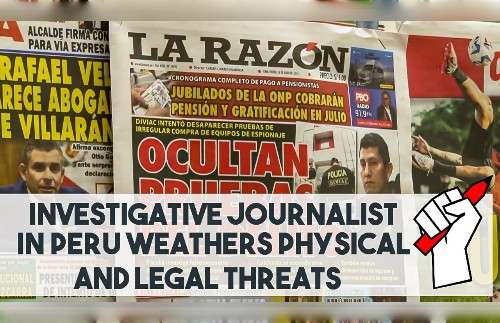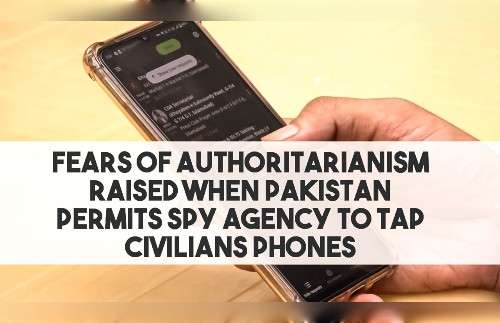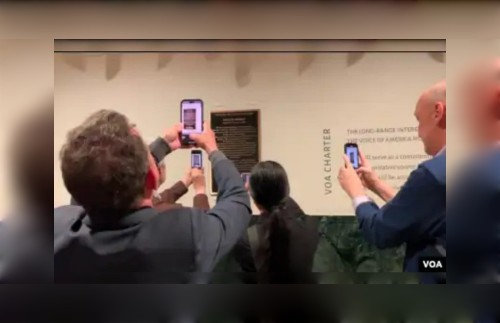Camille Elemia/Manila,Philippines

The Court of Appeals upheld a cyber-libel conviction against Maria Ressa, the Nobel Prize-winning chief executive of the Rappler news website, and a former staffer while adding eight months to their maximum prison sentences imposed by a lower court in 2020.
Rappler, a digital media news agency co-founded by Ressa in 2011, said it received the court’s decision on Friday.
Ressa, who is internationally regarded as a champion of press freedom in the Philippines, and Santos “disagree with the decision and their legal counsels are currently reviewing the decision,” Rappler said in a statement.
“Both will avail of all legal remedies available to them, including elevating the decision to the Supreme Court for review.”
On June 15, 2020, a Manila lower court sentenced Ressa, a known critic of then-President Rodrigo Duterte, and former Rappler researcher Rey Santos Jr. after finding them guilty of libeling Filipino-Chinese businessman Wilfredo Keng. The case stemmed from a May 2012 report that exposed a former chief justice’s alleged links to businessmen including Keng.
Under Philippine law, cyber libel is a bailable offense, granting Ressa and Santos temporary freedom until the Supreme Court reaches a final ruling.
“While the decision is unfortunate, it is also a good opportunity for the Supreme Court to take a second look at the constitutionality of cyber libel and the continuing criminalization of libel, especially in light of the freedom of expression and freedom of the press,” the Rappler statement said.
The appellate court also imposed a longer maximum prison sentence from the lower court’s initial six years, ordering Ressa and Santos “to suffer the indeterminate penalty of imprisonment,” which ranges from anywhere from six months to six years, eight months and 20 days. It also fined the pair 400,000 pesos (U.S. $7,160).
“Indubitably, Keng’s name has been tarnished by the appellants’ subject article which hastily incriminated him of several unsubstantiated offenses,” the court stated in its 41-page decision.
Rappler and Ressa are facing at least seven active cases ranging from alleged tax fraud, violations of the anti-dummy law that prohibits foreign ownership of a mass media company and cyber libel.
Conviction, closure
The court decision came a week after the regulator Securities and Exchange Commission upheld its 2018 shutdown order against Rappler over an alleged violation of the anti-dummy law.
The media organization denied any wrongdoing, vowing to continue operations “as usual” and to appeal the decision to the Supreme Court as well.
Rappler, which Duterte repeatedly attacked as a source of “fake news,” drew the ire of the former leader over its critical coverage of his drug war which has left thousands of Filipinos dead.
It also angered the camp of current President Ferdinand Marcos Jr. over its independent reporting on disinformation, the family’s assets and corruption cases.
Ressa shared the Nobel Peace Prize in 2021 with Russian journalist Dmitry Muratov “for their courageous fight for freedom of expression” in the face of authoritarian governments.
















